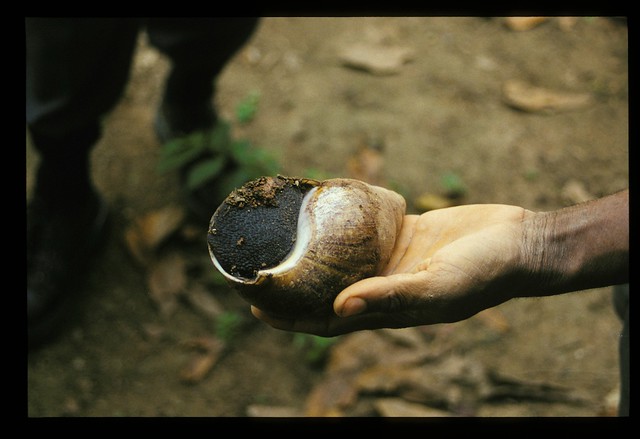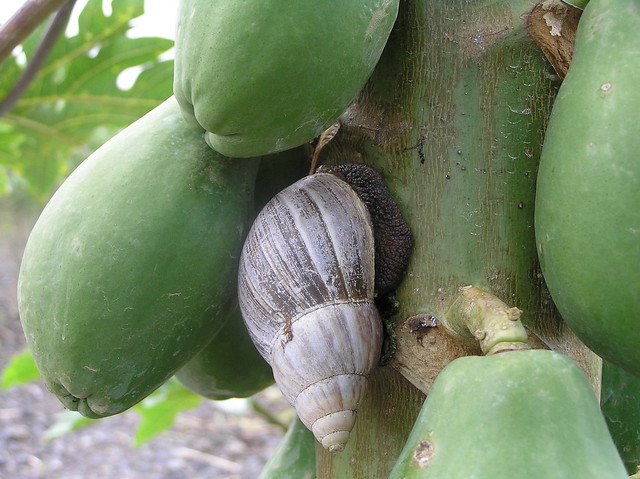
Freakish Giant African Snails Live on All Continents Except Antarctica
What the Giant African Land Snail Looks Like
The shell is usually reddish-brown with faint yellow vertical stripes, but color changes with diet and habitat. In Africa it lives on forest edges, riverbanks, shrublands, farms, gardens, wetlands, and even urban areas.

Behavior and Life Cycle
These snails are nocturnal and hide underground during the day. They are solitary — even after laying eggs there is no parental care. Their mouth contains a radula, a tongue-like organ lined with tiny teeth to scrape food.
They are hermaphrodites (possessing both male and female organs) and can self-fertilize, though most mate normally. Eggs hatch in a few hours to 17 days; maturity comes at 5–15 months depending on temperature. Lifespan is usually 5–6 years but can reach 9 years.
Environmental and Human Impact
Giant African snails damage crops, alter soil by adding calcium carbonate, and even create road hazards when crushed bodies make surfaces slippery. They produce foul odors when they die and compete with native species. Predators include ground beetles, caterpillars, other snails, and some vertebrates.
- Native to East Africa; also called the kalutara snail.
- “Giant African snail” refers to three species: Achatina fulica, Achatina achatina (giant Ghana tiger snail), and Archachatina marginata (margies).
- Now found across Asia, the Americas, Europe, and Pacific islands due to pet trade and agriculture.
More from The African Gourmet
- Historical African Country Names
- Top 20 Largest Countries in Africa
- How Many Countries Does Africa Have?
- Roots of Africanized Christianity Spiritual Songs
- Chocolate Processing Facts, History and Recipes
- Awesome Kenyan Woman
- Land Is Not For Women in Sierra Leone
- African Kente Cloth Facts
- Accra: The Ghanaian Capital Ultimate Mall Experience







